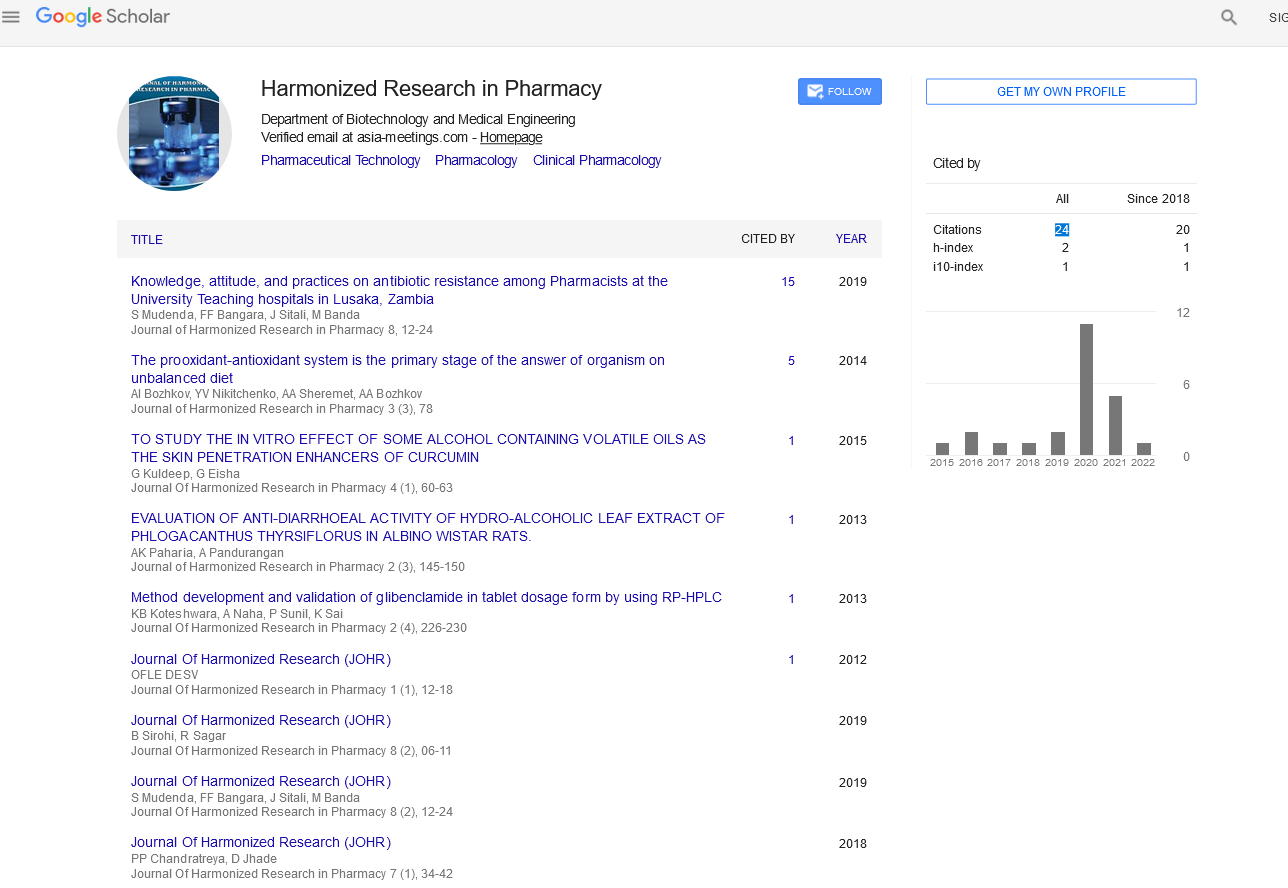EXPLORATION OF THERAPEUTIC POTENTIAL OF PROBUCOL IN SCOPOLAMINE INDUCED MEMORY IMPAIRMENT IN SWISS ALBINO MICE
Abstract
Author(s): Kuldeep K. Sharma, Neha Aggarwal, Upendra K. Jain
The present study was undertaken to investigate the beneficial effects of Probucol, a phenolic non-statin lipid lowering agent with anti-inflammatory and anti-oxidant properties in Scopolamine induce d memory impairment in swiss albino mice. In this study, Scopolamine, at the dose of 0.5 mg/kg, i.p. was injected 30 min before training session from day 1 to day 4 for induction of anterograde amnesia. Cognitive behaviors of mice were assessed using Morris water maze test. Brain acetyl cholinesterase (AChE) activity was measured by Ellmann's method. Brain thiobarbituric acid reactive species (TBARS) levels, reduced glutathione (GSH) levels and superoxide dismutase (SOD) activity were measured by Niehius and Samuelson’s, Beutler's and Wang’s method respectively to assess total oxidative stress. Brain myeloperoxidase (MPO) activity was measured by Barone’s method to assess inflammatory response. Brain total protein content was measured by Lowry’s method. Donepezil (0.1 mg/kg; i.p.) was used as positive control in the present investigation. Probucol (10 and 20 mg/kg; i.p.) successfully attenuated scopolamine induced cognitive deficits. Higher levels of brain AChE, MPO activity and TBARS levels and lower levels of brain GSH and SOD were observed in scopolamine treated animals, which were significantly attenuated by Donepezil and Probucol. Study highlights the potential of Probucol in memory dysfunctions associated with amnesia.

Google Scholar citation report
Citations : 147
Journal of Harmonized Research in Pharmacy received 147 citations as per google scholar report









